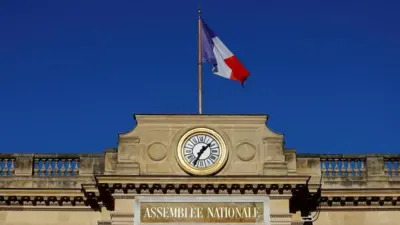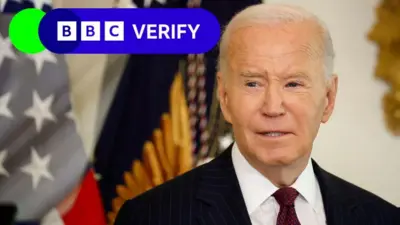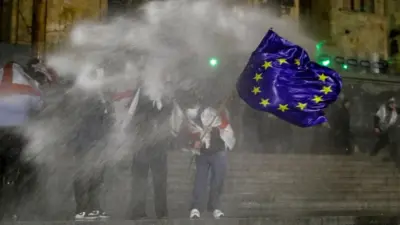We've updated our Privacy and Cookies Policy
We've made some important changes to our Privacy and Cookies Policy and we want you to know what this means for you and your data.
Leveson Inquiry: Police were politicised - Lord Blair
The police were largely apolitical until Tony Blair said "tough on crime, tough on the causes of crime", former Met Police chief Lord Blair has said.
Lord Blair told the Leveson Inquiry the comment prompted a fierce battle on crime as a party political issue.
He said his resignation and that of his successor Sir Paul Stephenson were covered by political correspondents rather than crime reporters.
Top Stories
Lord Blair was Metropolitan Police Commissioner between 2005 and 2008.
'Time with press'
Top Stories
He told the Leveson Inquiry into press standards: "I don't know how the political genie can be put back in the bottle.
"My sense is about the way in which crime became a dominant issue in US politics and they have much less distinction between the operational independence of police and the way police chiefs are appointed and dismissed.
"We have some difficulty. If one looks at the coverage of crime in newspapers, it is enormous and politicians are going to take note of that."
Lord Blair said he believed when he was in the job that senior staff were already spending too much time worrying about what the media was going to say next.
He said he had been determined that less time would be spent on press matters than under his predecessor.
Lord Blair told the inquiry: "I didn't have any dinners at all with editors or journalists with an exception with one friend who was a friend before I became commissioner, which was entirely social."
Lord Blair said there was a place for off-the-record briefings between police and journalists but these needed to be tightly controlled.
Top Stories
Horse loan
He said he knew broadcast journalists less well, with the exception of │╔╚╦┐ý╩Í director general Mark Thompson, who was a close neighbour.
Lord Blair said he had no recollection of discussing the loan by the Met of a horse to former News International chief executive Rebekah Brooks in 2008.
He told the inquiry he did not think anyone had taken notice of the police rulebook on behaviour, called General Orders, because it was too complex.
Lord Blair's book was serialised by the Mail on Sunday but he had never written for News International for payment, he told the inquiry.
He said there was an increasing number of leaks to the media while he was commissioner - in his view this was not for money but to further people's own views.
Asked about the original phone-hacking investigation in 2006, Lord Blair said the practice was something that had not been heard of before and "there was a discussion of whether it was an offence at all".
Lord Blair was told in late 2006 that his number was in private investigator Glenn Mulcaire's file but he said he had no evidence that he had ever been hacked.
The inquiry then heard from former Met Police Assistant Commissioner Bob Quick.
He said that former Metropolitan Police commissioner Sir Paul Stephenson and former assistant commissioner John Yates both urged him, as the officer in charge of the case, to drop the probe into Whitehall leaks made to Conservative MP Damian Green.
'Cut losses'
Mr Yates said the investigation from 2008 to 2009 into │╔╚╦┐ý╩Í Office leaks was "doomed" and advised Mr Quick to "cut his losses".
Mr Quick also claimed that Sir Paul, then acting commissioner, told him on 1 December 2008 that he had "written out his resignation" amid the controversy surrounding the Metropolitan police's arrest of Mr Green.
Mr Quick said: "I was surprised and quite shocked at that remark, because I couldn't see that the police were doing anything other than their duty to investigate what were very serious allegations from a government department."
He also said he and others under his command became concerned about relationships between officers and journalists.
"It became apparent that some officers were being bribed for stories," he said.
Intelligence revealed payments of between £500 and £2,000 - Mr Quick said such amounts meant that either journalists were falsely claiming this money from their employers or the newspapers were complicit.
He said he recommended an investigation but former Met Assistant Commissioner Andy Hayman had reservations and decided this was too "risky".
Mr Quick told the inquiry that he saw no evidence of deliberate leaking of information.
Top Stories
More to explore
Most read
Content is not available








